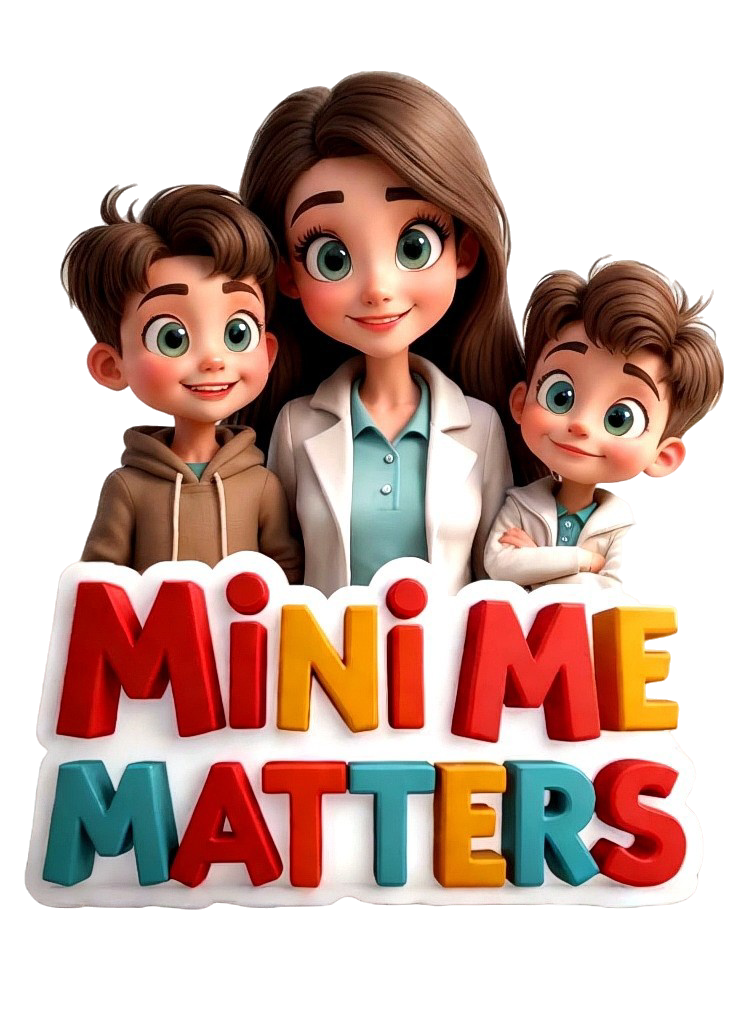Santa Claus. The big man in the red suit. The ultimate Christmas icon, gift-giver extraordinaire, and the only person who can make breaking into millions of homes in a single night seem charming instead of criminal! But have you ever stopped to wonder why Mini-Mes believe in Santa? Spoiler alert: It’s not just because we’re really good at hiding the receipt for the LEGO set. Let’s dive into the magical, scientific, and downright hilarious world of Santa belief!
The Magic of Make-Believe
Fantasy isn’t just for aspiring wizards or people who’ve rewatched Frozen 47 times. It’s actually a crucial part of Mini-Me development. Between ages five and eight, Mini-Mes spend an impressive amount of time pretending. A talking mouse? Sure. A snowman that belts out Broadway numbers? Absolutely. A group of flying reindeer led by one with a glowing red nose? Why not? To a Mini-Me, Santa’s sleigh is just another Tuesday.
Mini-MEs’ imaginations are fueled by the fantastical media they consume and their own wild ideas. Their logic isn’t bound by the same pesky “laws of physics” we adults obsess over. Honestly, adults could learn a thing or two from this carefree, magical thinking. Who wouldn’t want to believe their vacuum could turn into a rocket ship?
The Testimony of Truth (or Lies?)
Mini-Mes are surprisingly trusting little scientists. Researchers call this reliance on others’ information “testimony,” but let’s be real: it’s just Mini-Mes believing everything their parents say. When you tell them a jolly old man lives at the North Pole, they’re all in. And you back it up with evidence, too: cookies mysteriously vanish, presents magically appear, and who can forget the suspicious “Santa” wrapping paper you’d never use for Aunt Martha’s gifts? At first, all signs point to Santa being real. But eventually, Mini-Mes get wise. They’ll question the logistics of a sleigh with no seat belts and wonder why the neighbor’s chimney has been covered by pigeons for a decade yet Santa still delivers. They’ll interrogate their friends, Google “can reindeer actually fly,” and possibly spot your not-so-sneaky handwriting on the “Santa” gift tags. It’s all part of growing up.

Santa: Gateway to Scientific Discovery?
Did you know that the process of discovering the truth about Santa might actually boost your Mini-Me’s cognitive development? Yep, Santa Claus isn’t just delivering toys—h\e’s also delivering scientific habits of mind. By questioning evidence and revising their beliefs, Mini-Mes learn to think critically. (And to figure out you’ve been eating their cookies all along.)
It’s a classic case of intellectual humility: realizing you were wrong and moving forward. Honestly, if more adults embraced this skill, family holiday dinners would be a lot more peaceful.
Keeping the Magic Alive
Even after Mini-Mes uncover the Santa truth, they don’t throw him under the sleigh. Most still think the magic of Santa is worth sharing with their own Mini-Mes someday. Why? Because being “in on the secret” is exciting. Suddenly, they’re part of the adult team, conspiring to make Christmas magical for younger siblings. And let’s face it: adults love Santa too. Sure, he’s not real, but that hasn’t stopped us from watching The Santa Clause every December or smiling at the idea of “Santa” delivering joy.
Fun Is Enough
Ultimately, even if Santa doesn’t boost IQ points or teach advanced physics, the joy he brings is enough. Believing in Santa gives Mini-Mes —and their parents—an opportunity to engage in collective imagination. Whether you see it as a harmless “white lie” or just a fun tradition, Santa’s legacy is about more than toys; it’s about making the holidays special. So this year, go ahead and disguise your handwriting, chomp on some cookies, and shake those sleigh bells when no one’s looking.
Because whether you’re a true believer or just someone who loves the magic, Santa has a way of making glad the heart of childhood—and adulthood too.
REFERENCES
- Mills, C. M., Goldstein, T. R., Kanumuru, P., Monroe, A. J., & Quintero, N. B. (2024). Debunking the Santa myth: The process and aftermath of becoming skeptical about Santa.Developmental Psychology, 60(1), 1–16. https://doi.org/10.1037/dev0001662
- Anderson, C.J., Prentice, N.M. Encounter with reality: Children’s reactions on discovering the Santa Claus myth. Child Psych Hum Dev 25, 67–84 (1994). https://doi.org/10.1007/BF02253287
- Standley, J. (2020). The Santa Claus deception: The ethics of educator involvement. Theory and Research in Education, 18(2), 174–190. https://doi.org/10.1177/1477878520947042


